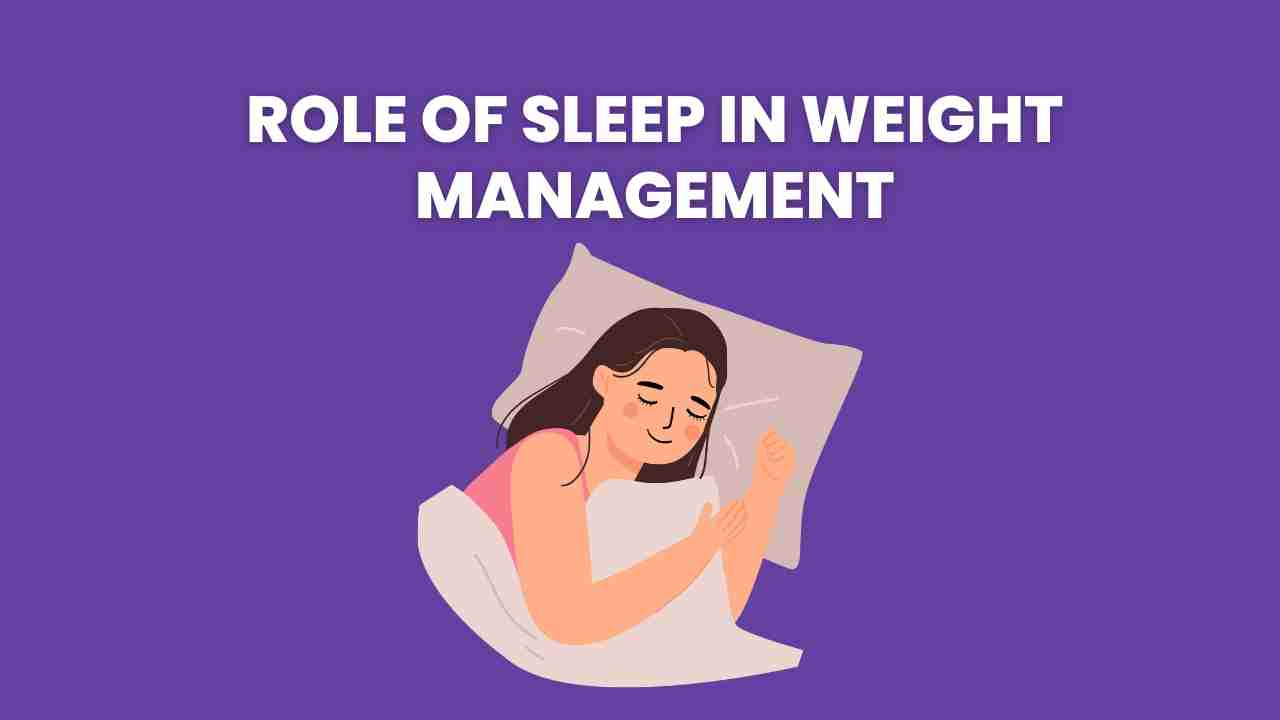In our modern, fast-paced lifestyles, sleep is often sacrificed in favor of work, social commitments, or leisure activities. However, this overlooked aspect of our daily routine plays a crucial role in weight management, and ignoring it can sabotage even the most diligent diet and exercise efforts.
The Science Behind Sleep and Weight Regulation
Sleep is intricately linked to the hormones that regulate hunger, appetite, and metabolism. When we don’t get enough sleep, our bodies experience an imbalance in these hormones, leading to increased cravings for calorie-dense foods and a slower metabolism.
One key hormone affected by sleep deprivation is leptin, often referred to as the “satiety hormone.” Leptin is produced by fat cells and signals to the brain that we are full and satisfied. When we sleep well, leptin levels are regulated, and our bodies respond appropriately to these signals of fullness.
However, when we experience chronic sleep deprivation, our leptin levels decrease, leading to a state of leptin resistance. This means that our brains don’t receive the signal that we are full, causing us to feel hungrier and consume more calories than our bodies need.
On the other hand, lack of sleep also leads to an increase in the hormone ghrelin, which stimulates appetite and promotes fat storage. This double whammy of decreased leptin and increased ghrelin creates a perfect storm for weight gain and difficulty losing weight.
Metabolic Consequences of Sleep Deprivation
Beyond the hormonal imbalances, sleep deprivation can also have detrimental effects on our metabolism. Research has shown that individuals who consistently get less than seven hours of sleep per night have a higher risk of developing metabolic disorders like obesity, type 2 diabetes, and cardiovascular disease.
When we don’t get enough sleep, our bodies experience increased insulin resistance, which means our cells become less responsive to insulin, a hormone that regulates blood sugar levels. This can lead to higher blood sugar levels and an increased risk of developing type 2 diabetes.
Additionally, sleep deprivation has been linked to a slower resting metabolic rate, which means our bodies burn fewer calories at rest. This can make it more challenging to maintain a calorie deficit, a crucial component of weight loss.
Also check: The Role of Hormones in Weight Loss
The Benefits of Good Sleep for Weight Management
Conversely, prioritizing enough quality sleep offers an array of benefits for healthy weight management:
- Appetite Control: Adequate sleep helps keep leptin and ghrelin in balance, promoting natural satiety signals and reducing the urge to overeat.
- Better Food Choices: Well-rested individuals are more likely to make healthy, conscious decisions about what they eat.
- Increased Energy Levels: Quality sleep enhances your energy, fueling the motivation for workouts and being generally more active.
- Enhanced Metabolism: Studies show that getting enough sleep can help your body burn calories more efficiently.
Also check: Weight Loss Supplements
Tips for Sleep-Supported Weight Loss
- Aim for 7-9 Hours: Most adults need around 7-9 hours of sleep per night for optimal health and well-being, including weight management.
- Consistent Schedule: Maintain a regular bedtime and wake-up time, even on weekends, to train your body’s internal clock.
- Create a Sleep-Conducive Bedroom: Invest in blackout curtains, keep your bedroom cool, and eliminate noise and blue light emissions from electronic devices.
- Manage Stress: Techniques like meditation or yoga can help ease stress and promote better sleep.
Prioritizing Sleep for Weight Management
Given the profound impact of sleep on weight regulation and overall health, prioritizing adequate sleep should be a fundamental part of any weight management strategy. While individual sleep needs may vary, most adults require between seven and nine hours of quality sleep per night.
Establishing a consistent sleep routine, creating a sleep-friendly environment, and practicing good sleep hygiene can all contribute to better sleep quality and quantity. Simple strategies like avoiding screen time before bed, maintaining a cool and dark bedroom, and engaging in relaxing activities before bedtime can make a significant difference.
By prioritizing sleep, we not only support our weight management efforts but also promote overall health and well-being. A well-rested body and mind are better equipped to make healthy choices, exercise regularly, and maintain a positive mindset throughout the weight loss journey.
Remember, while diet and exercise are essential components of weight management, neglecting the crucial role of sleep can undermine your efforts. Embrace the power of sleep, and you may just unlock the key to sustainable weight loss and improved overall health.
